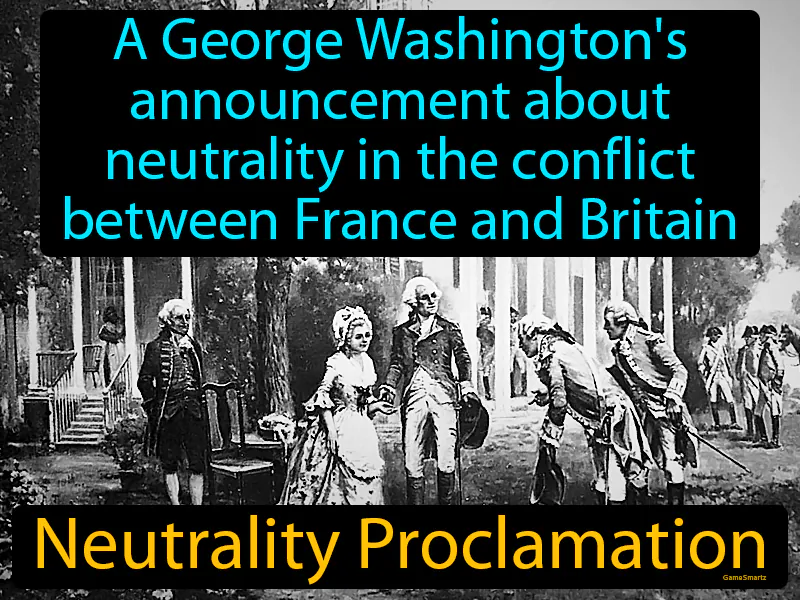Neutrality Proclamation

The Neutrality Proclamation, issued by George Washington in 1793, was important because it set a precedent for American foreign policy by keeping the U.S. out of European wars, specifically the conflict between France and Britain. It highlighted the idea of staying neutral to avoid unnecessary entanglements, which continues to influence how the U.S. approaches international conflicts. This decision emphasized the importance of focusing on domestic stability rather than becoming embroiled in foreign disputes. Today, this idea can affect people's lives by ensuring that government resources are prioritized for domestic needs like education and infrastructure rather than costly foreign wars. For an average person, this means more stability at home, potentially leading to better schools, roads, and services.
Practice Version

Neutrality Proclamation: A George Washington's announcement about neutrality in the conflict between France and Britain. Neutrality Proclamation. The Neutrality Proclamation was a 1793 statement by President George Washington declaring that the United States would not take sides in the conflict between France and Britain.